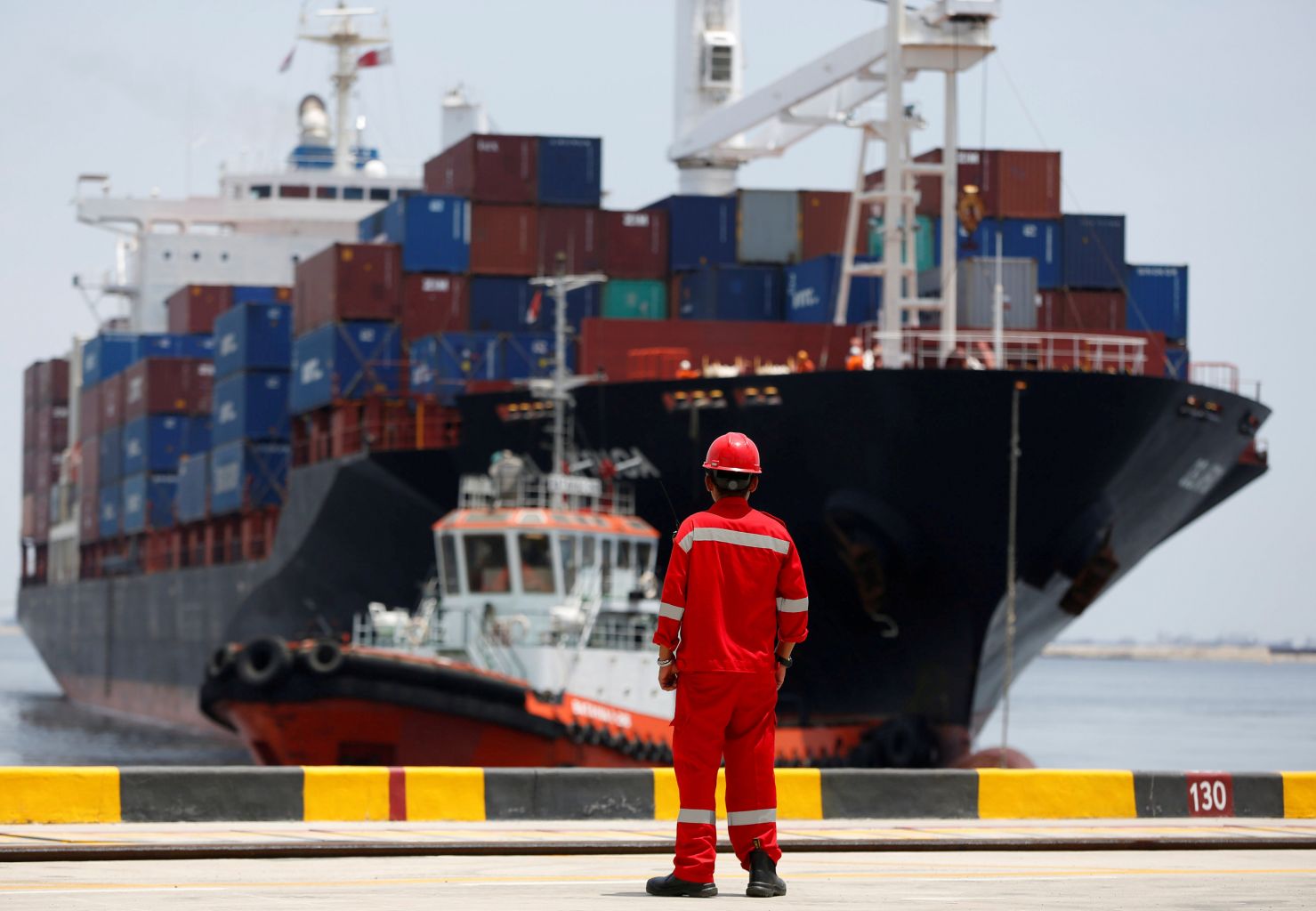Indonesia under US trade radar as Trump seeks to reduce deficits with trading partners
Sign up now: Get insights on Asia's fast-moving developments

A file photo of a port worker watching as a ship leaves the New Priok Container Terminal 1 in North Jakarta, Indonesia, on Sept 13, 2016.
PHOTO: REUTERS
Follow topic:
JAKARTA (THE JAKARTA POST/ASIA NEWS NETWORK) - Indonesia may no longer be able to remain a spectator of the ever-escalating global trade war with the country now on the radar of the United States government, which under the administration of President Donald Trump is seeking to reduce its deficits with its trade partners.
The Indonesian government has been anticipating the domino effect that could result from a trade war between the US and China, which finally began this week.
However, the government may have been cautious about entering into a trade spat with the US as it was revealed recently that Mr Trump in April pointed to Indonesia as having a trade surplus with the US.
The Office of the US Trade Representative (USTR) announced in April it would launch a review into Indonesia's Generalised System of Preferences (GSP), a program that offers exemptions from trade barriers, along with the trade policies of India and Kazakhstan.
"Indonesia has implemented a wide array of trade and investment barriers that create serious negative effects on US commerce," the USTR wrote in a statement posted on its website.
The USTR pointed out that the review would be based on concerns related to Indonesia's GSP criteria for market access, services and investment.
Commenting on the matter, President Joko Widodo said on the sidelines of the Indonesia Livestock Expo in Jakarta on Friday (July 6) that he would hold a meeting on Monday (July 9) to discuss the possibilities of a trade war.
Separately, Foreign Minister Retno L.P. Marsudi said that while Indonesia had a trade surplus with the US, other factors needed to be taken into account, such as services and investment.
"If we include them (services and investment), we want it to be a win-win," she said on the sidelines of a Joint Commission Meeting with her Thai counterpart in Yogyakarta on Friday.
Ms Retno, however, expressed skepticism about the possibility of a trade war with the US, stressing that relations between both countries remained warm.
"As of my latest meeting with the US secretary of state in Washington on June 6, they are still committed to implementing strategic partnerships between Indonesia and the US," she said.
According to US Census Bureau data, US apparel and accessories imports from Indonesia reached US$4.69 billion in 2016, 4.91 per cent lower year-on-year than the US$4.94 billion recorded in 2015. The category is the top Indonesian export to the US.
Indonesia's second mostshipped commodity to the US is food and kindred products, totaling US$1.78 billion in 2016, an increase of 7.99 per cent yoy compared to $1.65 billion in 2015.
On the other hand, Indonesia imported US$1.78 billion worth of agricultural products from the US in 2016, up 31.63 per cent year-on-year compared to US$1.35 billion in 2015. This is followed by food and kindred products at US$773.59 billion in 2016, 5.32 per cent higher year-on-year than US$734.51 billion in 2015.
Trade Minister Enggartiasto Lukita said on Thursday that Indonesia would prepare a retaliatory policy if the US moved forward with its plan to impose tariffs on 124 products imported from Indonesia, saying that the country's ambassador to the US "had pursued a [SOFT]approach".
"I have communicated with the US because, basically, we do not want a trade war as it will cause losses for all parties. We'd prefer collaboration," Enggartiasto said as quoted by kompas.com, adding that retaliation was still possible should the US pressure continue and that it could resemble that occurring between the US and China. When contacted by The Jakarta
Post on Friday, the Trade Ministry's International Trade Negotiations Director General Iman Pambagyo declined to comment on the matter given the "sketchy information" coming from the US.
Meanwhile, Shinta Kamdani, the Indonesian Employers Association's (Apindo) head of international relations and investment, said on Thursday that local businesspeople were aware that hundreds of commodities were currently under the US GSP review, including cotton, plywood and agricultural products.
Shinta said that, in the coming months, Indonesia's trade representatives would attend hearings in the US that would be witnessed by supporting and opposing panels, adding that the soonest would take place later this July.
"We will lose our key [to having a trade surplus] if we have to cease our GSPs because we will face higher tariffs," she said.

